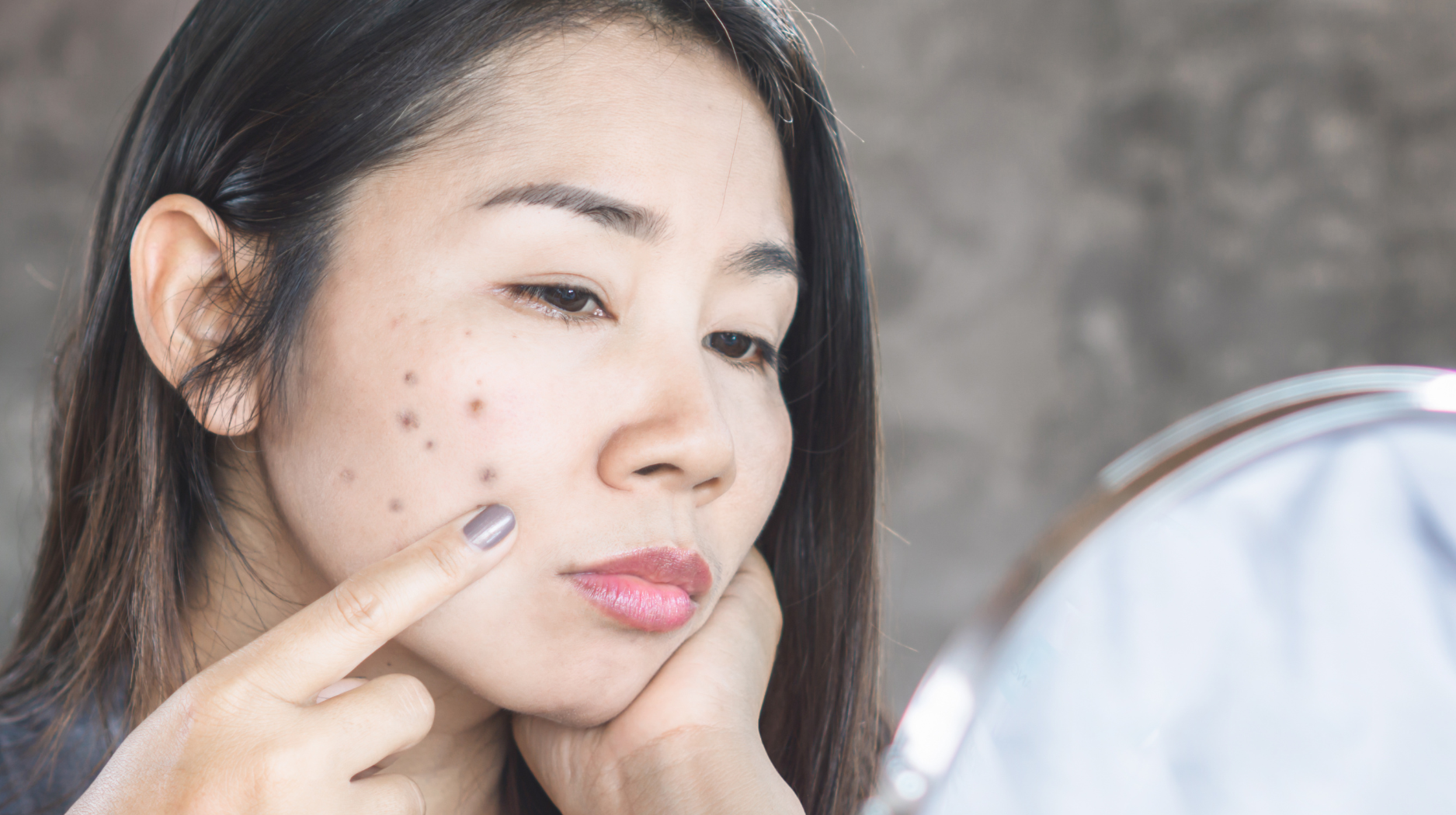Congratulations on deciding to dive into the world of skincare! The never-ending multitude of choices out there can be intimidating. Alpha hydroxy acids, salicylic acid, tea tree oil, shea butter; the list of holy grails for healthy skin can go on and on. But let's not go there; let's first start with determining your skin type. If you struggle with acne-prone skin or oily skin, this article is for you. We'll go right in and talk about the four core steps in an effective skincare routine for those with oily skin —starting with why face washing is so important and ending with why SPF is essential.
Without further ado, here's your comprehensive introductory guide to clear, healthy skin:
1. Use a soothing facial cleanser
Starting with a cleanse is a staple in any skincare routine. Use a gentle cleanser that doesn't include harsh chemicals like Sodium Lauryl Sulphate, as it can dry out skin even more and increase oil production. If you have oily skin, stick with mild cleansers free of harsh ingredients such as fragrances, dyes, and more.
A gentle cleanser will leave behind no residue after rinsing—you'll feel clean, refreshed, and ready for the next steps in your skincare routine for oily skin! Also, avoid soaps as they're often too drying for oily skin types and could even cause irritated skin or breakouts down the road!
2. Incorporate a serum
Serums include active ingredients that can penetrate deeper into the skin layers. They contain a much more concentrated amount of active ingredients as opposed to a lotion or cream, which means they can deliver better results without being overbearing to those with oily and sensitive skin.
Healthier, softer, and smoother skin can be achieved in no time with the Triple Action Serum or the Gold Radiance Serum. How, you ask? With active ingredients such as niacinamide, vitamin C, retinol, and sodium hyaluronate in the Triple Action Serum and tranexamic acid, idebenone and Centella Asiatica in Gold Radiance Serum, problematic skin issues such as overproduction of sebum, redness, inflamed skin, damaged skin barrier, and more can be targeted and subsequently resolved.
If you're unsure about which serums to get and want to find a solution specifically to stop greasiness, the Triple Action Serum is a great start. Apply your serum after cleansing (if you include a toner in your routine, put on the serum after toning), not before moisturizing!
3. Use a moisturizer that will help to balance sebum production
Regardless of your skin type, it would be best to use a moisturizer every day to keep your skin hydrated. However, choosing the right moisturizer is essential if you have oily skin. There's a good chance that the one in your skincare regimen right now may be causing excessive oiliness. The right moisturizers can help to rehydrate your skin, repair damaged skin barrier, improve the overall texture of your skin, and, most importantly, reduce the appearance of oily skin.
It can be challenging to find a moisturizer without fragrances that may irritate the skin, but luckily there are some fantastic options available in the market for sensitive and oily skin types. The NIHON Brightening Face Creme, for example, is excellent for oily skin types. It's fragrance-free and lightweight, making it perfect for those with oily skin. Cream moisturizers may work miraculously for dry skin types, but it is a one-way ticket to clogged pores, breakouts, and greasiness for those with oily skin.
Besides hydrating and moisturizing the skin, this product contains active ingredients such as retinol and arbutin to treat problematic skin concerns. As its name suggests, it's also great for brightening dull skin, lightening dark spots, as well as to fade stubborn acne scars (also great for ladies in their 30s for its anti-ageing effects!)
4. SPF is a must for all, especially oily skin types!
Sunscreen is one of the most critical parts of your skincare routine. It's the best tool you can use to protect yourself from the sun's harmful rays, which are linked to premature ageing and skin cancer. If you're going to be outdoors for more than half an hour, make sure you reapply now and then (every 2 hours, if possible). While there are many options out there—from zinc oxide moisturizers to makeup foundations with SPF protection built in— a lightweight, water-gel type sunscreen can be absorbed quickly into the skin, leaving it intensely hydrated and soothed. Remember, oily skin types are highly prone to clogged pores, inflammation, as well as breakouts; therefore, try to avoid layering too many heavy products on the skin.
If you're on the market for a complete, dermatologist tested and approved skincare routine for oily skin, NIHON Skin's Oily-Combination Skincare Products may just be exactly what you've been searching for. These products have been specifically designed to balance sebum levels and promote healthy skin, from cleansers and serums to moisturizers and sunscreens.
Here's a Simple yet Effective Skincare Routine for Oily Skin Types
Start by cleansing using a gentle cleanser twice daily (morning and night) to remove dirt and impurities as well as makeup. It can be beneficial to add a toner to your routine; however, it is not necessarily essential. We're keeping it simple, after all. Use a serum after a thorough cleanser, and let the product sink into your skin. Next, proceed to apply a generous amount of moisturizer on your face (on your neck region as well to prevent neck lines and wrinkles!).
Apply sunscreen when going outside during daylight hours—at least half an hour before heading out so that it has sufficient time to absorb into your skin. If possible, try using a hydrating mask once per week; masks can help hydrate your skin, and reduce inflammation caused by pimples while also soothing irritation from sunburns.
Four products are pretty much all you need for a complete skincare routine for oily skin! It is also recommended to start with products of the same brand as they have been researched and made to complement one another. As long as you have these four steps in the bag, struggling with oily skin will be the last of your worries.
FAQ
Why is cleansing important for oily skin?
Cleansing helps to remove excess oil, dirt, and impurities from the skin, which can clog pores and lead to breakouts.
What should I look for in a toner for oily skin?
Look for a toner that contains ingredients like salicylic acid or witch hazel, which can help to control oil production and minimize the appearance of pores.
Can I skip moisturizing if I have oily skin?
No, even oily skin needs moisture to stay healthy and balanced. Look for a lightweight, oil-free moisturizer that won't clog pores.
What kind of targeted treatment should I use for oily skin?
Consider using a spot treatment with benzoyl peroxide or tea tree oil to help clear up any breakouts or blemishes.



